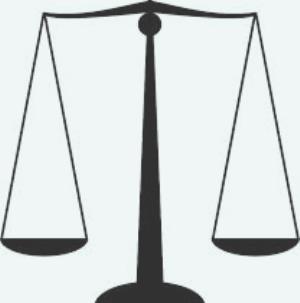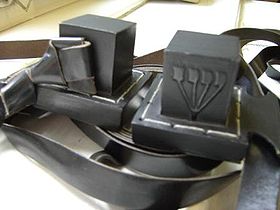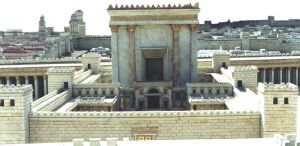 Parashat Shoftim
Parashat Shoftim
“Judges and officers shall you appoint in all your cities…”
This week’s parsha is all about creating a judicial system. Why is it juxtaposed with the section dealing with festivals? It is to show that just as we need sacrifices on the festival holidays, so we need judges to make sure that there is no question of theft on any of the sacrificial animals.
There is a story of a great Rabbi who was appointed Rav of a prominent city by the president of the community. A few days later, a beggar came to the Rabbi and asked him to summon the community president to court, as an injunction had been brought against him. The Rabbi immediately sent the bailiff to the president, but everyone’s surprise he refused to come! The Rav sent the bailiff back with a warning, and again he refused. The bailiff went back a third time, this time with a warning of excommunication, and this time the president came. He approached the Rabbi and cried “Mazeltov! Today you have truly become Rabbi of this town – you have shown that you will show no preference to anyone, not even the one who appointed you!”
This story demonstrates that a judge must act impartially and with a solid eye on the truth: “they shall judge the people with righteous judgement”. Thus it is said “the appointing of judges is important enough to guarantee that Israel will live and remain in the Land”.
If a man is found guilty of a crime, their must be two witnesses who warned him not to commit the sin. If the crime is severe enough he is sentenced to die. In this (extreme) case, the Torah tells us “the hand of the witnesses shall be the first to put him to death”. In western society, the job of an executioner is a despised one – not anything one would aspire to. “My son the hangman” is not a familiar boast by proud parents. Why then is this awful job ascribed to any person, let alone the ones who warned the criminal in the first place?
I heard a very interesting answer to this by Rav Zalman Sorotzkin zt”l. In western society, for certain types of murder (especially ‘crimes of passion’) there is a tendency for people to identify with the killer. Let’s say the murderer had killed his lover’s husband. Would the public not say “Maybe he should be forgiven? After all, he was in love, and the victim was an abusive husband and didn’t treat his wife correctly”. There have been cases where the murderer has even received a full pardon on the ground of public or media opposition – a blatant perversion of justice.
Not so with the Jewish world. Every Jew is obligated to distance himself from sin. We are obligated to act with justice – to root out any thoughts of sympathy or vindication when it comes to these types of crimes. In the case of the witnesses, who were the ones to warn him not to commit the crime, we say that they have a special tendency to have sympathy – after all, they are the ones who ensure his sentence. That is why they must be first to execute the criminal; and afterwards, “all Israel shall hear and be afraid, and they shall not again do such an evil thing in your midst”.
Further to this, the sedra continues “When you come into the Land that Hashem, your G-d, gives you… I will set a king over myself”. Our Rabbis teach us that the people were given three commandments to do when they came to the Land, one of which was to appoint a king over them. At first glance, it would make more sense if they appointed the king before entering the Land, so that they could conduct the war and divide the Land among them.
Moses and Joshua, the faithful shepherds of Israel, were never called “kings” – for this very reason. Why not? Probably because if the people had appointed a king and he brought them into the Land and conquered it, they would have attributed their success to the king’s prowess and bravery. They might have even said that G-d had done nothing for them. Therefore G-d delegated His faithful prophet to carry out his request, and failing that, his disciple Joshua. Thus might all Israel know “from G-d was this thing”. That is why the verses are phrased in this way: “when you come to this Land which Hashem your G-d” (not any king of your choosing) “gives you… [to] possess it and settle in it” (not that the king does the apportioning), only then “you shall surely set over yourself a king”.
Conspicuously adjoining the laws of appointing judges is the prohibition of the planting of the asheira tree. The asheira tree appeared as any other tree, but it had another purpose. It was worshipped as an idol.
Those two sections adjoin. The sages comment that there is a stark comparison. “Anyone who appoints an unworthy justice is as if he planted the asheirah tree in his midst.” The obvious question is: though both acts are terribly wrong, there must be a greater reason other than the fact that they both are wrong and immoral. What is the connection?
There was a period in the 1970’s when a group of rogues were smuggling valuables in Tefillin (phylacteries) and other religious articles that would usually evade inspection; thus the thieves assumed their scheme would be successful. Often they would send these religious articles with unsuspecting pious Jews and asked to deliver them to certain locations near their final destinations.
When United States customs officials got wind of this scheme they asked a few observant agents to help crack the ring. In addition to preserving the sanctity of the religious items, the customs authority felt that Jewish religious agents would best be able to mete out knowing accomplices from unsuspecting participants who had been duped into thinking they were actually performing a mitzvah.
The Jewish custom agent in charge of the operation decided to confer with Rabbi Yaakov Kamenetzky on this matter. Though his advice on how to break the ring remains confidential, he told me how he explained how the severity of the crime was compounded by its use of religious items.
“Smuggling diamonds in Tefillin,” he said, “is equivalent to raising a white flag, approaching the enemy lines as if to surrender and then lobbing a grenade. That soldier has not only perpetrated a fraud on his battalion and the enemy; he has betrayed a symbol of civilisation. With one devious act, he has destroyed a trusted symbol for eternity – forever endangering the lives of countless soldiers for years to come.
“These thieves, by taking a sacrosanct symbol and using it as a vehicle for a crime have destroyed the eternal sanctity and symbolism of a sacred object. Their evil actions may cause irreparable damage to countless honest religious people. Those rogues must be stopped, by any means possible,” he exclaimed.
Rabbi Chaim Soleveitchik explained the comparison of the asheirah tree to the corrupt judge. An asheirah tree is a very deceiving object. It is as beautiful as any other tree in the world. However, man has turned its aesthetic beauty into a vehicle for blasphemy. “A judge,” Rabbi Chaim Soleveitchik explains, “has all those attributes. He may have an honest appearance, even a regal demeanour. In fact, he could have a long kapote and a flowing beard. His very image exudes traits that personify honesty, integrity, and morality. However if he is inherently dishonest he no better than a lovely tree whose sole purpose is to promote a heretical ritual of idolatry.” They both may look pretty and could be used as a vehicle to promote G-d’s glory but in this case, they are not. In fact, quite the opposite. Those formerly beautiful objects now bring disgrace to the Creator.
And so, the Torah tells us this week that trees may have outer beauty, but cannot be classified unequivocally as being an ever-sounding testimony to Hashem’s glory, likewise a judge whose demeanour may be noble may be a source of deception who will bring disgrace on an entire nation. After all, as the saying almost goes, “you cannot book a judge by its cover!”
SHABBAT SHALOM





